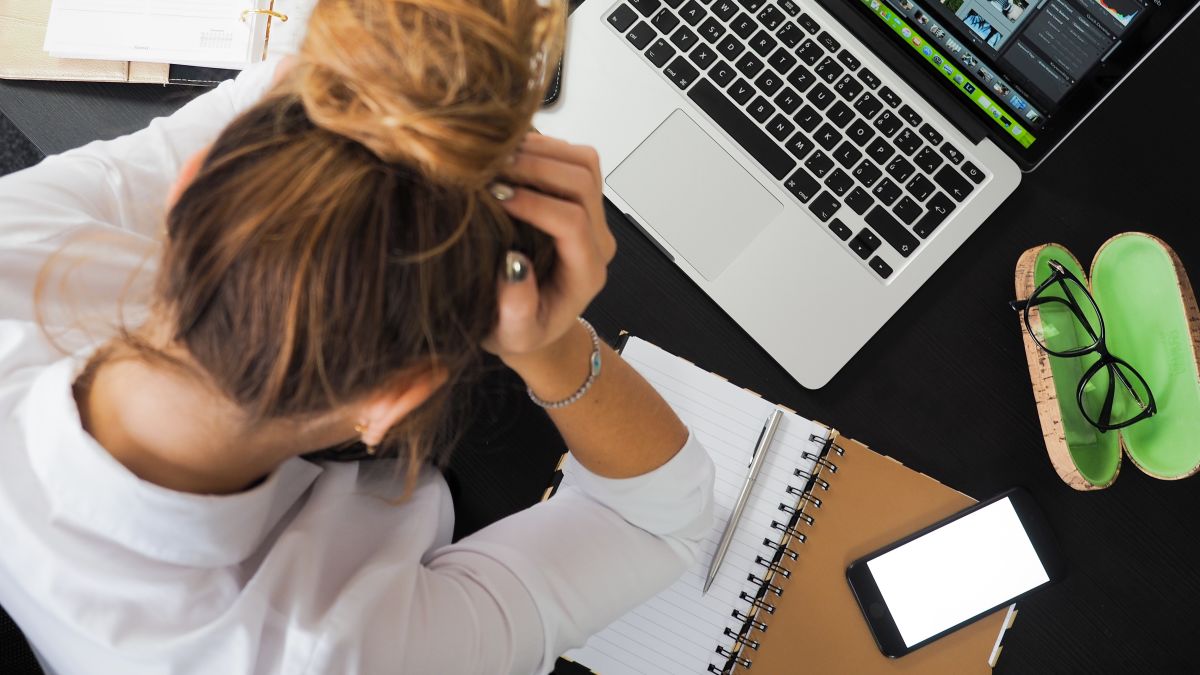Living with NVP

Based on how long Nausea and Vomiting of Pregnancy (NVP) symptoms may last, and that up to a third of women with NVP may experience severe symptoms, many women realize they need to learn how to live, parent, work, socialize, travel, and function with their symptoms.
Although NVP symptoms vary, for some women, nausea can be all day, constant, last all night, and potentially last weeks or even months. After a few days, even women with a high tolerance for nausea may realize they need some help.
Management of NVP begins with dietary changes and lifestyle modifications, small changes women can make throughout their day that can positively affect their symptoms. It is very likely women will have to incorporate more than one tactic at the same time (i.e. listening to music + aromatherapy; walking outside + controlled breathing; ginger gum + vitamin B6).
Different scenarios throughout the day may also call for different combinations of these methods. Strategies women use at work may not help them much at home, and tactics they use to get through the night may not work at all during the day. Remaining flexible, keeping track of what works, not giving up, and keeping an open mind are all critical for better success.
Background
Nausea and Vomiting of Pregnancy (NVP) may last weeks to months in most pregnant women. Due to this, and no matter the severity, many women recognize they will need to learn to manage their symptoms while continuing to work, parent, socialize, take care of a household, and even just to function.
This is where Preparing Family is helpful. Pregnant women should not bear the burden of everything they did before on top of also experiencing moderate to severe nausea and/or vomiting for weeks (although some women may feel they have to).

Women should try to get their partners and other family members to learn more about NVP, its real facts, and its management techniques. Partners/family have a strong, beneficial role to play in helping women live with NVP for a few weeks or months, and it starts with better information.
Women should also lean on their HCP when necessary. They need to find an HCP at the onset who understands the condition, and empathizes with women who are experiencing it. Research is continuing to show how early management, before symptoms peak, can potentially prevent symptoms from getting out of control and therefore, unmanageable.
Women need to find an HCP who actively recognizes this and supports women's efforts to get in front of their symptoms.
Living (General)
Women's ability to cope with their symptoms while running errands, driving to work, holding a meeting, grocery shopping, folding laundry, or helping with homework will largely depend on three major factors: eating, drinking, and managing fatigue.
Overall, research indicates that if women can focus on eating very small meals throughout the day, remaining adequately hydrated (i.e. avoiding the emergency room), getting enough rest and sleep to avoid a progressive cascade of symptoms, and getting their HCP involved early, they will have better control over their nausea and vomiting.

The above would be easy to do if life did not get in the way. Women will need to engage in various techniques and strategies to make sure they can still accomplish eating, drinking, and resting despite all their other responsibilities. Some women will be able to do this much easier than others, while many other women will need a lot of help.
Even when women balance the above perfectly, it is unlikely symptoms will go away entirely; therefore, women should aim for small goals, and one task at a time. They should aim to implement certain dietary changes and lifestyle modifications that provide a tolerable level of nausea to get through their day, possibly hour-by-hour – and at times, to accomplish the bare minimum.
Although women may have other individuals they are responsible for on a daily basis, women should not forget they also need to take care of themselves – physically, mentally, and emotionally. Women need to keep a check on their mental health through the entirety of pregnancy, especially during severe NVP.
Women may also need very specific strategies at certain points of the day, since responsibilities change depending on the time.
Whether during the day, at night, or at work, women should wear comfortable clothing whenever possible. Restrictive or tight clothing around the abdomen may worsen nausea, especially if bloating is also present.
Overall, good hygiene can help women feel better, even if only temporarily. Women should take showers or baths whenever they can; some women find nausea relief simply by standing in the shower and letting warm water fall over them.
Baths can be incredibly helpful and relaxing as well, but women need to make sure the water isn't too hot. Further, staying in a hot bath for more than a few minutes can decrease blood pressure and make women feel worse (also read Heat Exposure).
NVP can pose a problem for maintaining oral hygiene for many women, particularly those suffering extreme NVP. Sometimes the simple act of brushing teeth can trigger the gag reflex, retching, or vomiting. However, oral hygiene is critical during pregnancy, especially after vomiting (read more).
As a general rule, women may wish to avoid social media. Seeing photos and mentions of food could give women waves of nausea. Further, if NVP has been lengthy and severe, some women may have a hard time seeing certain photos of others vacationing, drinking, traveling, dining out, or socializing.
Working
At some point, depending on how long NVP lasts and the severity of symptoms, women may need to start requesting time off or using their sick leave. To avoid using the majority of their allowed leave, women should have a serious conversation with their supervisor about their options.

Some women may feel very uncomfortable telling their supervisor/boss they are pregnant, especially very early in their pregnancy. Due to this, some women may choose to continue to work their job through their symptoms. However, this could eventually take a physical and mental toll, leading to possible loss of productivity and pregnancy-related complications.
Under United States federal law, women are afforded multiple employment protections and reasonable accommodations so they can work more comfortably not only during NVP, but throughout their pregnancy.
According to the U.S. Equal Employment Opportunity Commission, the Pregnancy Discrimination Act (1978) (PDA) requires:
“that a covered employer treat women affected by pregnancy, childbirth, or related medical conditions in the same manner as other applicants or employees who are similar in their ability or inability to work. The PDA covers all aspects of employment, including firing, hiring, promotions, and fringe benefits (such as leave and health insurance benefits). Pregnant workers are protected from discrimination based on current pregnancy, past pregnancy, and potential pregnancy.”
Further:
“Although pregnancy itself is not a disability, pregnant workers may have impairments related to their pregnancies that qualify as disabilities under the Americans with Disabilities Act. An employer must provide reasonable accommodations, such as:
“Modifying a work schedule so that someone who experiences severe morning sickness can arrive later than her usual start time and leave later to make up the time”;
“Modifying workplace policies by allowing a pregnant worker more frequent breaks or allowing her to keep a water bottle at a workstation even though the employer generally prohibits employees from keeping drinks at their workstations”; and
“Granting leave in addition to what an employer would normally provide under a sick leave policy”.
Although not all places of employment offer a woman a respectful/private way to do this, women should consider telling their direct supervisor/boss they are pregnant and are experiencing nausea and/or vomiting. Women can inform their supervisor they will do everything they can to remain at work, but may also require occasional sick leave, other time off, or possible accommodations.
If women do not want to tell their direct supervisor they are pregnant, they should consider telling at least one trusted co-worker, if possible. Someone at the woman's place of employment should be aware of her condition for emergency purposes. If the woman were to get dizzy, faint, or have any other issue, it is a good safety practice that someone there knows she is pregnant/suffering from NVP.

Reasonable accomodations may include:
If women work a night shift and are having trouble sleeping, or their symptoms peak at night, women may need to request a temporary shift change;
For women in the food industry, they should talk to their employer about temporarily changing job responsibilities/duties. Although this may not always be possible, women should talk with their supervisor and determine an option that will work for both parties.
For women who are on their feet all day, travel often, work 12-hour shifts, or are responsible for small children, discussions with their employer are a must.
These changes are only temporary; women (and their employers) should understand that NVP spirals and gets progressively worse in most cases if not managed from the beginning. If women get burned out trying to work normally on top of moderate-to-severe NVP , their physical and mental health will suffer, along with job performance.
Management strategies for working with NVP also include:
If a woman suffers from NVP first thing in the morning, or closer to the end of the day, she should tell her supervisor she may need some leverage arriving late or leaving early. If this conversation is causing any anxiety or stress, women should go directly to their Human Resources representative, or another direct line supervisor. We have also written an "open letter" to employers here. HCPs should also help women communicate with their employer.
Women should aim for the best night's sleep they can – this will help them dramatically during the work day. Research has shown that better sleep the night before is more beneficial than one or two naps during the day. Women should also give themselves as much time as possible in the morning to get ready, especially if they were sick all night (or first thing in the morning).
If a refrigerator is not available for use, women should ask if they can have a small mini-refrigerator at their workstation, if and when possible.
Women who remain at a desk/computer all day should take short breaks, especially from staring at the screen. A computer monitor flickers rapidly, almost unnoticeably, and can contribute to nausea. If women cannot get up and walk around occasionally, they should at least look away every few minutes, stretch their arms and back, and close their eyes for a few seconds.
If it is not possible to avoid using a computer monitor, it may help to adjust the screen by making the fonts bold and larger and changing the background to a soft tan or pink color (some computer monitors have "night light" mode that softens the hue). This can help reduce eye strain.
Women should avoid sitting or standing for any lengthy period of time. They should try to take small walks when possible, even if just around the office, hallways, or to the restroom.

To avoid the inevitable coffee smell in the office, women should ask to sit away from the coffee machine/pot. If this is not possible, women can put a pleasant-smelling lotion on their hands and bring their hands close to their face to potentially block out the odor. Women could also hold a cotton ball with a few drops of lemon or peppermint oil and bring that to their face as well. Essential oil bottles are small and can easily fit in a purse. There are also aromatherapy necklaces and scarves women could consider wearing at work.
Women should keep chicken bouillon cubes, tea bags, or other warm beverage ingredients at their desk or in a drawer. Mug heaters (if allowed) or ceramic lids can help keep the mug warm so women do not have to continually get up and re-heat it. However, if getting up to go to the microwave every 20 minutes or so helps with nausea, then re-heating is a good reason to get up.
Women should keep their work station, desk, or locker filled with easy, convenient snacks: dry cereal, crackers, granola bars, hard candies, ginger gum, etc.
Women should consider wearing flats or avoiding heels with NVP. If women need to run to the bathroom quickly, or are dizzy and lose their balance, they could potentially fall.
In general, if an employer's dress code or uniform contributes to nausea due to balance concerns, tightness, or temperature, women should let their supervisor (and HCP) know.
Women should consider what they would do at their work location if they need to vomit. Not all women have the availability or flexibility to find a bathroom at any given moment. Women who may have no other choice should put small plastic bags in their pocket or talk to their supervisor about this.
Women should also consider keeping a small toiletry bag at their desk/locker that includes a toothbrush, toothpaste, mouthwash, mints, face wipes, etc.
Hard candies throughout the day may help a lot of women with their nausea; they also serve as a good mental distraction (ginger, citrus-flavored).
For women with NVP that need to eat something every hour to keep nausea at bay, long meetings in a conference room, convention center, or during shift work can be difficult. Energy balls are a very easy, soft (i.e. not noisy) item the can just pull out of their purse in small pieces and eat a few bites (see our Pinterest page). Women could also sit close to a door and excuse themselves whenever necessary. If women have a favorite granola bar, they should break it into a bunch of small pieces and put them into a plastic bag. Dry cereal (with larger pieces) is another good option.
For women who experience hot flashes or get very hot prior to a nausea/vomiting episode, they should purchase an inexpensive mini-fan (battery or plug-in) they can keep at their desk.
For women who pack their lunch, they should try to do this the night before, especially if they suffer from morning nausea. However, doing this the night before can be tricky since it is hard to guess what they may want to eat – or are even capable of eating – the next day. Women should try to at least pack something. They should stock their bag with ten different options if they need to to increase the odds something might be tolerable.
Belly bands are not just for when women start showing – women should use one to help them with bloating or make them more comfortable in their work clothing. They can undo their top pants button and add the belly band on top.
For women with a commute, they should:
Prepare their car (or a friend's car/carpool)
Prepare a playlist
Use the car’s heating and cooling to their advantage
Keep sick bags in the middle or passenger-side compartment
Keep the car stocked with bottles of water, wipes, and a towel
Keep the windows down so they can breathe in fresh air

If women need to vomit and cannot safely pull over, they should consider something firmer and disposable to throw up in; it can be very difficult/unsafe to hold open a bag while driving (small paper/plastic bowl, large paper cup, etc). It can also be unsafe to vomit out the window while driving. If women believe they could throw up, they need to slow down and pull over whenever possible.
Women should always take private or public transportation if they do not feel they can safely drive home due to nausea/vomiting or extreme fatigue.
For additional information, women should also read Be Ill Prepared at Work.
Parenting
Parenting with NVP changes the dynamic of how women are able to freely manage their nausea. Full-time parenting with NVP can challenge a woman's ability to mentally cope when she is the very definition of sick and tired.
Even though time away from their child(ren) can give women some much needed rest time, it can also cause feelings of guilt. Therefore, even though physical symptoms may be temporarily relieved, mentally, women may still suffer. Women should try to remember, that in the long run, her ability to rest right now is the best strategy for the entire family.
Although not every woman/family can afford childcare or get easy access to a babysitter, women should not hesitate to ask for help, even if this includes 30-minutes at a time. If a trusted friend or family member is offering help, women should take it.
Regarding chores and other household responsibilities, women should try to accept very early on that they may need to let certain things go for the next several weeks, or until they are through the worst of it. If laundry piles up, the house gets cluttered, a few items go unstocked, or the kitchen starts becoming a mess, they need to accept this is okay.

Lying in bed thinking about how dirty the house is, how she is not spending time with her child(ren), feeling stress from being absent from work – all this mental anguish can add up and make women feel worse. Plus, this guilt will prevent them from relaxing during their all-too short rest time.
Women/partners should consider explaining to older children exactly what is happening – they may even be able to help. It may also make their adjustment during this time easier.
Additional management strategies for parenting with NVP also include:
The more organized the family can be – the better. During their nausea-free time, or when its at least most tolerable, women (or their partners) can fold and separate outfits for an entire week in their child’s closet.
Meal prep lunches in advance and freeze dinners when possible or have friends and family help.
The crock pot can also be a very good friend – women or partners can set something up in the morning/early afternoon without needing to touch it until it's done.
For women who cannot go near food at all, they should ask their partner, family member, friend, co-worker, or neighbor to help cook, provide meals, or go grocery shopping.
For women who stay at home watching small children, trying to keep little one's busy without much assistance can be challenging. A quick search of Pinterest can give women hundreds of easy ideas to keep toddlers and older children busy, so they can at least sit (or just be stable) for a few minutes or longer (we have a few ideas pinned here). These are also the same tactics/methods women may need to use when the baby arrives.
There are numerous service websites that can help the family find a house cleaner, babysitter, or delivery meals. Women should use them to their advantage whenever they need.
Women should always remind themselves (and their partners, when they need it) that no matter how much their family’s routine will change, it is temporary, even in the most extreme cases. As women begin to feel better, they can gradually get back into their normal routine.
Women should consider making a list of people they can call in a pinch on certain days; they should make note of when those individuals may be available. Therefore, when they may need someone as soon as possible, they will have a head start on who to call.
Socializing
Although many women can empathize with NVP regardless of their own experience, others may not. This can make it difficult for some women currently experiencing NVP to talk to their friends, which may include amending or canceling plans.
Some women may find it very frustrating explaining to their friends how they feel, especially if those friends did not experience NVP during their pregnancies, or those friends were able to easily manage it with one or two techniques.
In some cases, women can feel judged for not being able to better handle their symptoms or for not having a higher tolerance for their nausea.
While this certainly is not always the case, women can only focus on themselves right now. If they need to cancel, they need to cancel. Although canceling plans tends to be hard and sometimes guilt-ridden in general, women should not focus on that – they need to feel better now.
While it is certainly natural for women to feel they may be "missing out", this is temporary. Eventually, they will start to feel better and feel more normal, and they can continue their normal routine of being with their friends and enjoying nights out, afternoon parties, and other events with their family.
For any event women want and feel they can attend, they need to be prepared. Women probably know by this point that NVP can be rather unpredictable in some cases, especially for women who experience trigger nausea/vomiting.

Women should spend a few minutes thinking about the event and what they would do if they suddenly feel very sick. They should also ask about food availability, restrooms, fresh air, temperature, and if they will be able to have easy access to things they may need.
No matter what type of social event, women do not want to be stuck without food, water, air conditioning, a restroom, or anything they may need from their coat, car, or purse.
Holidays/Seasons
NVP can make some women feel they will miss out on certain holidays, seasonal foods, events, and overall, just not get to enjoy specific times of the year. Further, women who have experienced NVP in a prior pregnancy may try to get pregnant at certain points of the year (to the extent possible) to avoid being sick during certain months.
This can be hard to reconcile for some women, and going through November to January or June to August completely sick can be hard to accept. The best women can do is prepare the best they can, take each day one a time, and realize they may not feel as bad as they expect tomorrow or even next week.
Women should start managing their symptoms as early as possible and do this with the help of their HCP. Women should enjoy as much of the season as they can, regardless. These events will occur again, they will have a new baby the next time, and they will look back and be grateful they were able to somewhat take part in events.
However, families need to work together if a pregnant women is experiencing such severe symptoms at her favorite time of the year. Missing moments that may only come once a year can make some women feel very upset or even depressed.
Additionally, some women may experience criticism during major family or social events; women can explain that complaining, not feeling well, or asking for small changes does not mean they are not grateful to be pregnant or that everything should "revolve around her".
Nausea and vomiting are notoriously difficult symptoms to easily tolerate/manage. In the end, women need to manage and protect their own physical and mental health.

Women should take complete advantage of their nausea-free times and rearrange immediate family events (when possible) to accommodate these times so they can participate in their own family traditions (baking, looking at lights, watching movies).
Women can save or freeze Thanksgiving pies, Christmas cookies, and other favorite foods, and even ask family to seriously consider opening Christmas gifts in the afternoon, evening, or possibly even the next day.
Women can enjoy Halloween with their child(ren) by walking with another adult as well, slowly sipping ice water or warm beverage, walking slowly, and staying at the end of driveways to avoid hill climbing, running kids, or even whiffs of chocolate and candy.
Yearly or traditional summer vacations or weekend trips may need to be postponed until the late summer or early fall. If this is not possible, women can do everything in their power to manage their symptoms on a plane or in a hotel (see Traveling, below).
All aspects of managing NVP throughout different times of the year requires creativity. If women do not want to stay home, they can take as many preparatory actions as possible, and continue to live normally the best then can with a few (or more) adjustments.
Traveling
If women need to travel with moderate-to-severe NVP, this will also take a lot of creativity and preparation.
Different modes of transportation are easier than others. Travel by vehicle is the most convenient, as women can pull over or stop whenever they need to. Trains allow for more mobility and better hydration, but potentially more motion sickness. Air travel allows for the least amount of flexibility, but women can still take certain actions to adequately manage symptoms the best they can.
Packing the right items in a backpack or large purse is key no matter which method of transportation women use. Women will want to have everything they need within easy reach. This is especially critical for air travel, as there is no way to stop if women forget something.

Women should think about/choose their seat when they can. Whether window or aisle or close to the bathroom, they should pick where they will be most comfortable, to include the passenger side of a vehicle or in the back. Additionally, some women feel their motion sickness improves when they are driving, as opposed to being the passenger; experimentation may be necessary.
Women need to remember any and all medications, vitamins, and supplements they need.
Additional management strategies:
Women should bring their own disposable sick bags (women can actually get these online in different colors/patterns).
Women should consider packing a light change of clothes that can be rolled up and placed into their travel/carry-on bag.
When fighting an actual wave of nausea, women should try to play with a fidget spinner or rubber band to keep their hands and brain busy.
They should also load up any devices with videos, books, music, and games they know will help keep them distracted; they need to make sure they have all cables, chargers, and headphones. Women should also consider noise canceling headphones; these are perfect for drowning out the plane’s engines and can help them rest.
Women need to remember to breathe – it will help them get through take off, turbulence, and descent. Women should complement this with aromatherapy (lotion, essential oil on a cotton ball), which has been shown to help women take slow, controlled breaths.
A neck pillow can help women fall asleep, especially if in the middle seat or aisle.
For hot flashes due to nausea, women should consider bringing a small battery-powered fan with foam blades.
If traveling with children, women should spend extra time during nausea-free hours prior to the trip making sure their children's bags are totally set to go with snacks, toys, movies, coloring books, and other items to keep them busy.
When specifically traveling by vehicle, women and their families should take advantage of having the ability to pull over whenever necessary. They should plan rest stops ahead of time and try routes that allow enough time to stop, stretch, and use the restroom. They should also give themselves enough time to arrive at their destination in case they need to pull over more than anticipated.

Women should remember to take extra clothes, food, and water. Packing a cooler to keep things cold could also be helpful if women prefer yogurt, ice water, cheese, sliced fruit, or other refrigerated food items.
Action
Women should do what they can to prepare various aspects of their lives for possible NVP symptoms, no matter how severe or how long they may last. Most importantly, women need to talk to their HCP before their symptoms get too difficult to manage on their own.
Further, women should also consider sharing their NVP experience (below), including how they felt, how long it lasted, what may have caused or contributed to their symptoms, and anything they did that relieved symptoms, even if only temporarily.
Partners/Support
This page is called "Living with NVP " because right now, NVP is the woman's life, especially if she has moderate-to-severe NVP that lasts most of the day.
It can affect almost everything she does, from waking up to brushing her teeth, to eating, showering, driving to work, figuring out lunch, sitting through meetings, picking up kids, going to the grocery store, cleaning, taking out the garbage, making dinner, nighttime routines, and trying to fall asleep. Everything.
It is a constant presence because she always has to think about whether a particular activity will make her feel better or worse. If she does not eat a snack now, will she be able to make it through her commute without gagging? But if she eats now, will she be uncomfortable for the drive?

Partners and other family members and friends should talk to the pregnant woman about how she is feeling and how they can help. The smallest things can make the biggest difference. Some women may even have mild nausea at their peak; however, even a mild, constant nausea takes its toll in a matter of days.
NVP is temporary, even in the most extreme cases (relieves with delivery). On average, women should start seeing some relief if not complete relief within 16 to 22 weeks of pregnancy. Helping women as much as possible during these first few months will keep her physically, emotionally, and mentally stronger for the rest of her pregnancy, ultimately improving not only her own overall health, but the health of the baby as well.
Resources
Nausea and Vomiting of Pregnancy: Committee Opinion 189; January 2018 (American College of Obstetricians and Gynecologists)
Morning Sickness: Nausea and Vomiting of Pregnancy (American College of Obstetricians and Gynecologists)
Pregnancy sickness (nausea and vomiting of pregnancy and hyperemesis gravidarum) (Royal College of Obstetricians and Gynecologists)